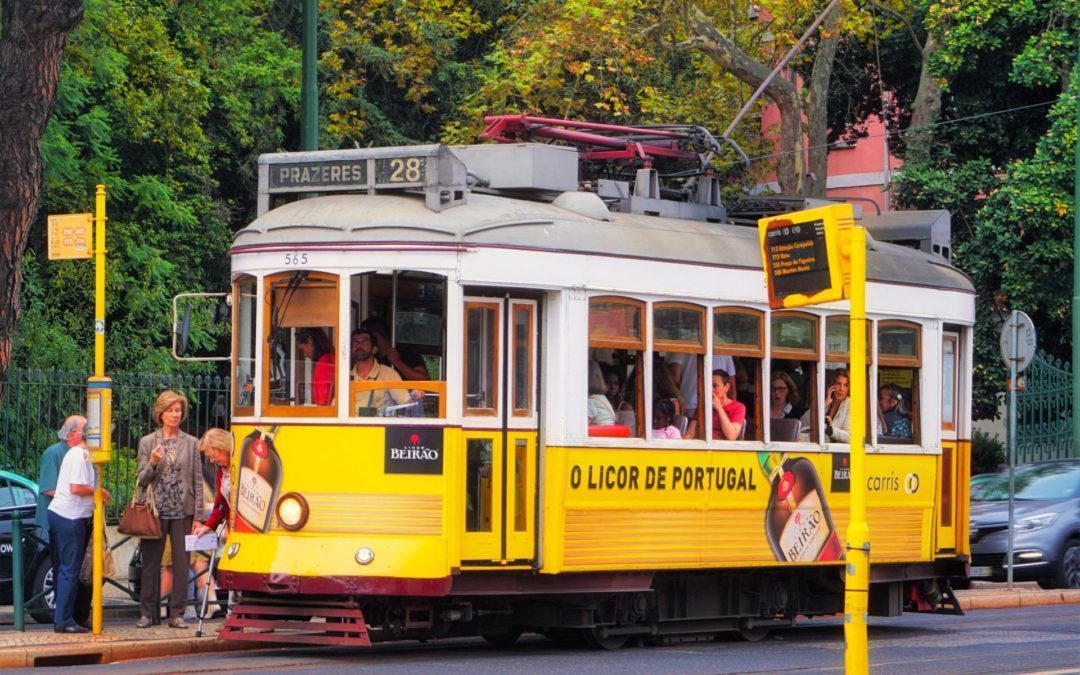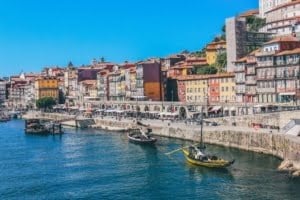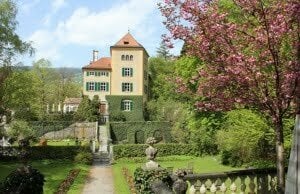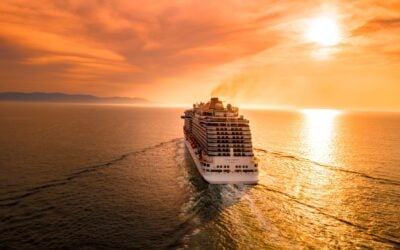We have fallen in love with Portugal. We first went on a stop-over on Tap Portugal Airlines that allowed us to layover for up to 5 days with no additional cost. After the first time visiting, we fell in love with the country. And it is a perfect location if you are interested in sustainable travel. Portugal is a famous country in Europe for its beaches, old cities and its massive national parks. We have all seen the pictures of the Algarve region, beautiful Lisbon and the drinks in Porto. Portugal is also the 10th most visited country in Europe. They have a massive 21 million visitors every year. This country knows they have to think about the future of tourism and provide plenty of sustainable options. Therefor they were awarded the Best Sustainable Tourism destination in Europe in 2019. They have been working on their goals the entire year of 2020 as well so we could all hopefully visit this sustainable country next year.
What is sustainable tourism exactly and what does it mean for Portugal
Sustainable tourism is the tourism that takes full account of its current and future economic, social and environmental impacts, addressing the needs of visitors, the industry, the environment and host communities. That is the definition. In a more human language, contain what we have and make sure it is to a benefit to any party related in tourism, not just the tourists. Portugal is the country that has the most sunshine, yes even more than France, so you can imagine that the solar power they are able to generate is enormous. Portugal has the goal to make the country run off of this kind of renewable energy alone, to eliminate the use of fossil oils. They are working very hard to reduce their impact and go to the top of the list of the most sustainable destinations, all this by 2027! Like we said, their award in 2019 was only the beginning of a change in how Portugal will lead the way to sustainable tourism.
Sustainable award after award: in 2020 Lisbon, of all European contestants won the title of ‘European Green Capital’. First of all, they got the award because of their public transport system, the bus and the tram. No need to rent cars nor hire a cap, their public transport can get you from every corner of the city to the other. Lisbon also has an amazing bike-sharing scheme, with electric bikes comprising two thirds of the fleet to encourage cycling in the hillier parts of the city since 2017. Because yes, Lisbon is a hilly city. If you do insist on using a car, Lisbon has one of the world’s largest networks of electric vehicle charging points, and many cap drivers have chosen an electric car to drive their customers around. Lisbon promotes sustainable hotels, think about low impact materials, local workers and a fair wage. Of course there is also the food. Portuguese food is characterized for being extremely good, healthy and very affordable. You can find a lot of typical Portuguese home cooking restaurants all over the city. Many of them insist of cooking with only national ingredients, from farmer to the table, seasonal and delicious.
How to enjoy sustainable tourism in Portugal:
The Portuguese trails: Sustainable tourism is there to promote cycling & walking routes in Portugal. One of these regions is called Sintra-Cascais. There are many hikes and tramping trails in this beautiful national park. From easy to difficult, from in the middle of nowhere to being surrounded by some of the UNESCO listed World Heritage monuments, as in: you can combine your hiking boots with some beautiful heels and feel a princess among those castles. Or even the rugged coastlines and sandy beaches, hello bathing suite! This national park has it all and is located at the doorstep of Lisbon. Many people have heard about Sintra regarding the monuments, yet there is so much more green to discover as well. Portugal has come to the realization that they should promote the region even more for the hiking and cycling trails. It has become very easy to rend a bicycle for half a day or longer and enjoy the monuments plus the trails. Another beauty is Peneda-Gerês National Park. There especially the development of ecotourism to the Mourela Plateau was a beautiful example on how people created a sustainable place for tourism by developing five interpretive paths which lead visitors through the park and allow them to see the conservation practices that are explained in the interpretation center at first hand. Visitors can see the locals farming the way they’ve always did and learn about their way of life. This focus on tourism has brought new opportunities for local communities and has generated new job opportunities as well. So by visiting Penede-Gerës national park you are investing in the future of the locals. Of course you are also enjoying the beautiful landscapes at the same time, you can taste the delicious produces they have been making for centuries or marvel over the delicate handcrafts.
The Portuguese waves: we sure can highlight the country’s excellence as a surfing destination, some people even say they have the best waves of Europe. Thanks to its very mild climate and often offshore morning breezes Portugal has been able to stand out as a popular surfing destination for surfers. The country has a huge variety of waves and swell size, so it makes an ideal surfing location for surfers of every level. Did you know that Portugal even holds the Guinness World Record for the largest wave surfed? I mean, Portugal should be on top of your list to go surfing. Skip the north of Portugal, move towards the center or just go north of Porto. There are many projects running to keep surfing as close to nature as possible. Our focus lies on Peniche, because this is the world’s first town that received the Stoke Surf Destinations certificate for sustainable surfing. This goes beyond surf break protection and surf school regulation. Think about the protection of the 18,500 hectare UNESCO Biosphere Reserve, protecting the local surfers and the ancient roman traditions regarding vibrant fishing. Many European students go to a surfing school in Portugal during the summer holidays and Portugal is doing its best to provide their teachers with the best knowledge not only about how to stand on a board, but also on how to protect the ocean.
Transportation in Portugal: It is so easy and convenient to take the train all around Portugal. We know many people like to visit multiple cities in the country and we just want to tell you that they are all connected by the Portuguese railway system. The same goes for the beautiful national park Sintra-Cascais, you can take the train from Lisbon and visit this magnificent park all by foot or by bike. No need to hire a driver if the public train system can help you move around. The same goes for visiting more than one city. It is possible to take the train from Lisbon to Porto, pay a bit more for the fast train but even the regular train takes only 3h to get from one city center to the other. Prices are very competitive and trains are comfortable and then we haven’t even mentioned how scenic these routes are. Easy to book at the train stations or in in advance.
How to stay in Portugal: ‘Solares’ that is the word you should search for in Portugal instead of ‘hotels’. These Solares are family homes, so they are way more into a personal feeling as opposed to hotels. Plus each of them offers a holiday experience with a personal yet very different touch. So yes, within this category the accommodations are wide ranging, from elegant country houses to rustic cottages, even farmhouses, each with an individual and authentic character. Some of the TURIHAB homes have hosted visitors since the 16th and 17th centuries. Your hosts will arrange a series of leisure activities such as fishing, hunting, horseback riding, cycling, wine-tasting and so much more. Not only is this a sustainable way of staying in a foreign country, it will bring you also closer to the locals their way of life and history. You’ll experience loads of things of the beaten track. There is a company that can help you with your stay called ‘Nature meetings’. They help you to find yourself in an eco-friendly yurt in the mountains of Portugal near the ancient university town of Coimbra. But also to an ecological estate in the famous Serra da Estrela Nature Park, where you can stay on the banks of the River Mondego at a large granite-built farmhouse with a private pool. Nobody ever said that choosing for sustainability means giving up on certain luxuries.
Rural Portugal: Rural tourism is proving a vital tool for sustainable tourism in Portugal, helping to put a halt to a migration which had threatened the future of many communities across swathes of southern and central Portugal. Farms stays, country inns and restaurants are vitally for boosting the income of many locals. They are hosting and feeding visitors who, thanks to the wonderful climate, are increasingly visiting year round. A demand for crafts and local produce helps maintain production as well as pride in the preservation of ancient skills. The surge in wildlife travel also underpins responsible tourism in Portugal by spurring environmental protection and driving initiatives such as the in 2013 opening of the Rota Vicentina in the Alentejo. Alentejo is a historical and cultural region situated in the south of Portugal. Which name translates as “beyond the Tagus River”. The region is largely made up of cork plantations, wheat fields and vineyards, all amazing places to stay and put your head to rest, or drink some tasty wines.. You can also expect several ancient Roman ruins sites to discover and wander around with a local guide. For the beach lovers among us, Alentejo als has breathtaking beaches along the coast to explore and to sunbath. This region can offer you amazing weather till late in the year. Add the fact that in Alentejo you can avoid the crowds and understand why we put this region on the map for you to enjoy in a sustainable way. The wonders are there – you just need to go and marvel – and of course then tell all your friends about it.
About that last point, to tell your friends about it, this is how we can spread the word of sustainable tourism. Many people are so used and stuck in their previous way of travelling following mass tourism and this is often because people are not aware of all the amazing possibilities that exist. So let’s show them the way and hopefully we have shown you a new way to a more sustainable way of travelling. Because even though we’ve put a highlight here on Portugal, because they are doing so so well regarding sustainability, many other countries are following their footsteps of offering more sustainable tourism as well.
Related Posts
Beyond the Big Five: Discovering Wildlife Wonders in Non-African Safari Destinations
“Beyond the Big Five” takes you on a thrilling journey to lesser-known safari destinations outside of Africa. From the lush rainforests of the Amazon to the vast plains of the Pantanal in South America, this article uncovers the hidden treasures of wildlife wonders that await adventurous travelers seeking a unique and unforgettable safari experience.
Traveling the Hemingway Way: A Guide to Adventurous Exploration
“Traveling the Hemingway Way is not just about visiting destinations, but immersing yourself in the spirit of adventure. Follow in the footsteps of the legendary writer, Ernest Hemingway, as you embark on thrilling journeys, seeking out untamed landscapes, vibrant cultures, and unforgettable experiences. Get ready to embrace the thrill of exploration like never before.”
Cruises vs. Authentic Adventures: The Great Travel Debate
Explore the pros and cons of both cruise vacations and authentic adventures in this travel debate. From the all-inclusive luxury of cruises to the immersive experiences of off-the-beaten-path adventures, discover which travel style suits your preferences and offers the most rewarding experiences.










0 Comments